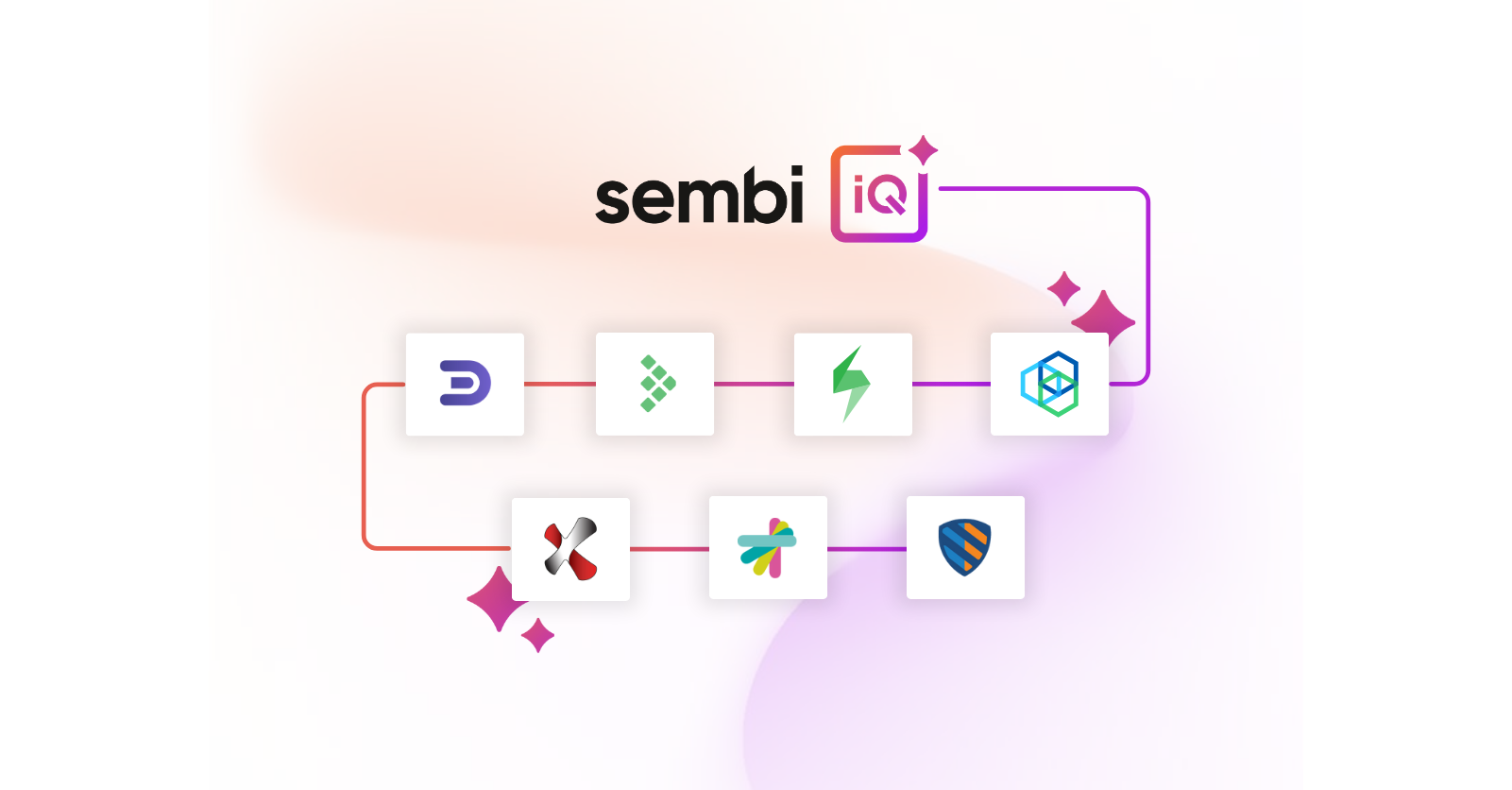

Using open-source code in your development can save time and help you create a better final product. Approximately 72% of companies are thought to use open-source code in their software.
With a massive amount of developers contributing to and testing open-source code, you may think that it’s safe to use. But the same elements that make open-source code so appealing also make it vulnerable to security risks. While some sizeable open-source code projects are thoroughly documented, tested, supported, and maintained — there are no guarantees regarding the quality of work put into these projects.
Using code without running it through open-source code management tools can expose your company to various dangers, including security breaches and compliance issues.
Before effectively using open-source code, you must understand how to mitigate the prevalent risks.
Open-source code carries no security guarantees or obligations, and developers who create open-source code typically aren’t security experts, so they often prioritize functionality over security. As a result, when vulnerabilities are identified, you may not have any instructions or support for implementing security features to address them.
Although many sizeable open-source code projects have a better reputation for software security than proprietary software, this isn’t always true, particularly for smaller projects. Some open-source code projects don’t even have any security auditing procedures in place.
The quality and maintenance of open-source code can vary widely depending on project maturity, community support, and code contributors. Developers may encounter poorly documented code, inconsistent coding standards, or unmaintained projects, which can hinder development efforts and increase technical debt.
Contributors, users, and organizations such as the National Vulnerability Database make vulnerabilities in open-source code publicly known. Bad actors can exploit these vulnerabilities. Although you may get advanced notification of risks if you’re a member of an open-source code community, so will all other members. If you don’t keep the code and components updated to the latest version, this risk increases.
Organizations using open-source code must establish policies, processes, and controls to ensure compliance with legal, regulatory, and industry requirements. This includes managing license obligations, tracking dependencies, conducting security assessments, and implementing governance frameworks to mitigate risks associated with open-source usage.
Failure to adhere to license terms, such as providing attribution, including license notices, or distributing derivative works under the same license, can lead to legal consequences and intellectual property disputes. However, the licenses attached to open-source software are varied and extensive. They are also often incompatible with each other. By using one component, you may be violating the terms of another, and the more components you use, the more amplified this problem is.
Managing dependencies and version compatibility can be challenging when using open-source code, particularly for projects with numerous dependencies or frequent updates. Developers may encounter issues like version conflicts, deprecated libraries, or incompatible APIs, leading to compatibility issues and project delays.
Open-source projects may be abandoned, stagnated, or discontinued due to factors such as changes in project leadership, loss of community interest, or funding issues. Relying on unmaintained or abandoned projects can leave developers with unsupported codebases, unresolved issues, or outdated dependencies.
Some open-source code licenses include provisions that require any software created with the open-source components to be released entirely open-source. This restricts its commercial value and makes it useless for creating proprietary software.
In addition to creating problems with your intellectual property, you may unknowingly be infringing on others’ intellectual property rights. Because there are no restrictions on who contributes to open-source code, it’s not always possible to know that the code is original. As a result, if you use copied code from a protected source, you may be held liable.
Open-source code projects are often the work of a small group of volunteers who do it in their spare time. If they get overwhelmed or tired, you may find your team responsible for fixing security issues and other code defects in-house. Some open-source projects may lack adequate documentation, technical assistance, or community support.
Open-source code management is organizing, tracking, and controlling open-source software components used in software development projects. It encompasses various activities to effectively manage the acquisition, integration, maintenance, and compliance of open-source code within an organization. Open-source code management involves both technical and non-technical aspects
Codifying an open-source usage policy is the best way to take advantage of the benefits of using open-source code without falling prey to the risks. Finding a balance between efficiency and thoroughness in your code review process is essential to encouraging innovation while protecting your company’s data, reputation, and intellectual property. A solid open-source strategy should include several key elements.
Download the code from the official website whenever possible. If that’s not possible, use an authoritative GitHub repository rather than a second or third-hand GitHub source. The farther you get from the source of the original project, the more likely you are to encounter unreliable code that contains vulnerabilities.
Establish clear policies, processes, and governance frameworks for using open-source code within your organization. Define roles and responsibilities for managing open-source dependencies, conducting code reviews, and ensuring compliance with legal and regulatory requirements. Implement mechanisms for tracking usage, resolving disputes, and enforcing compliance.
Even if you don’t download open-source code directly, it’s likely included in the software you’ve obtained from third parties. So, in addition to knowing exactly where open-source code is utilized in your projects, you should audit all third-party code you use. Not only is this a good idea from a code security standpoint, but it also ensures you can fulfill all licensing obligations.
It’s easy to skim over the licensing agreements and assume you understand the terms. However, without a thorough understanding of the terms you agreed to when you downloaded the code, you run the risk of violating the licensing agreement
Additionally, open-source projects can change their licensing terms, so they must be continuously monitored. Therefore, you should implement your licensing review process every time you use an open-source component in a new or updated application.
Since licensing agreements for different components may conflict, bring in your legal team to ensure you fully comply with all relevant licenses. You may also run into compliance issues regarding data protection with some open-source code components, so you’ll also need to get clearance from your legal team on those issues.
Prioritize security when using open-source code by conducting vulnerability assessments, code reviews, and security audits. Monitor security advisories and patches for open-source components and promptly apply updates to mitigate security risks. Consider using automated security scanning tools and penetration testing to identify vulnerabilities.
Provide education and training to developers on best practices for using open-source code, including license compliance, security awareness, and risk management. Offer resources such as workshops, seminars, and online courses to enhance developers’ understanding of open-source principles and practices.
Document the use of open-source components in your projects, including license information, dependencies, and attribution requirements. Maintain accurate and up-to-date documentation to facilitate compliance, collaboration, and knowledge sharing among team members. Provide appropriate attribution to original authors and contributors in your software applications.
For most companies, the benefits of using open-source code outweigh the risks involved. However, it’s crucial to the long-term success of your business that you have a comprehensive strategy for using open-source components. In addition to implementing best practices for managing open-source code risk, consider using an application that scans your code to identify vulnerabilities so you can mitigate risk and ensure compliance with open-source code licenses.
Kiuwan works with many of the world’s largest insurance, commercial, and finance organizations to help them develop secure applications. We offer an end-to-end application security platform to reduce your cybersecurity risks. Integrating Kiuwan into your current DevSecOps pipeline will automate your security processes so you can detect vulnerabilities in minutes. We comply with all security standards and offer tailored packages to mitigate your cyber risk within the SDLC.
Software composition analysis (SCA) is a security methodology that application developers can use for managing and finding vulnerabilities within open-source components. With this open-source code management tool, developers and programmers can perform a vulnerability assessment, confirm security license compliance, and ensure code quality.
Kiuwan’s SCA features include:
With Kiuwan, you can identify and remediate vulnerabilities with fast and efficient scanning and reporting. Contact our team today to see how our solutions can help your business.


